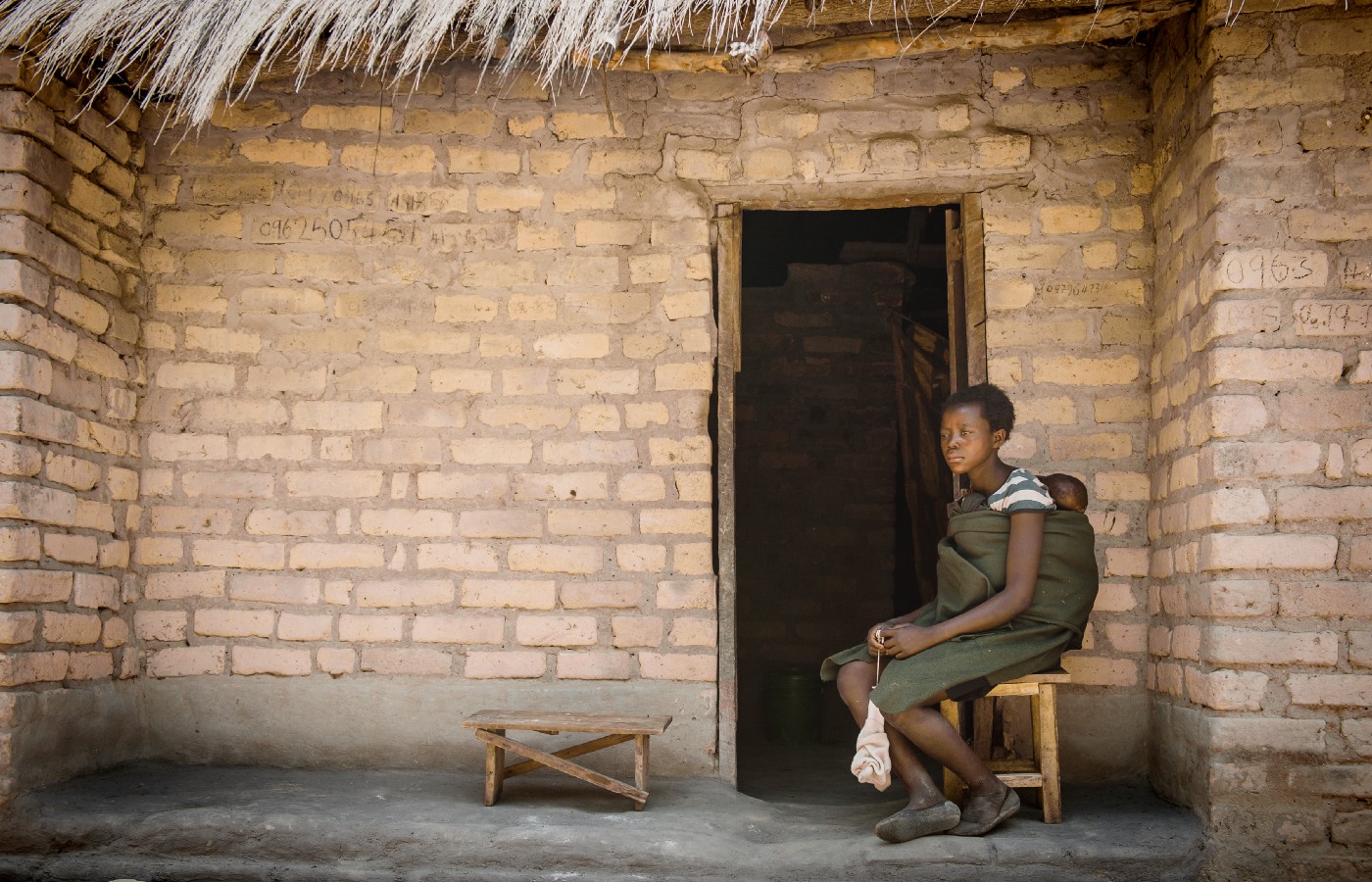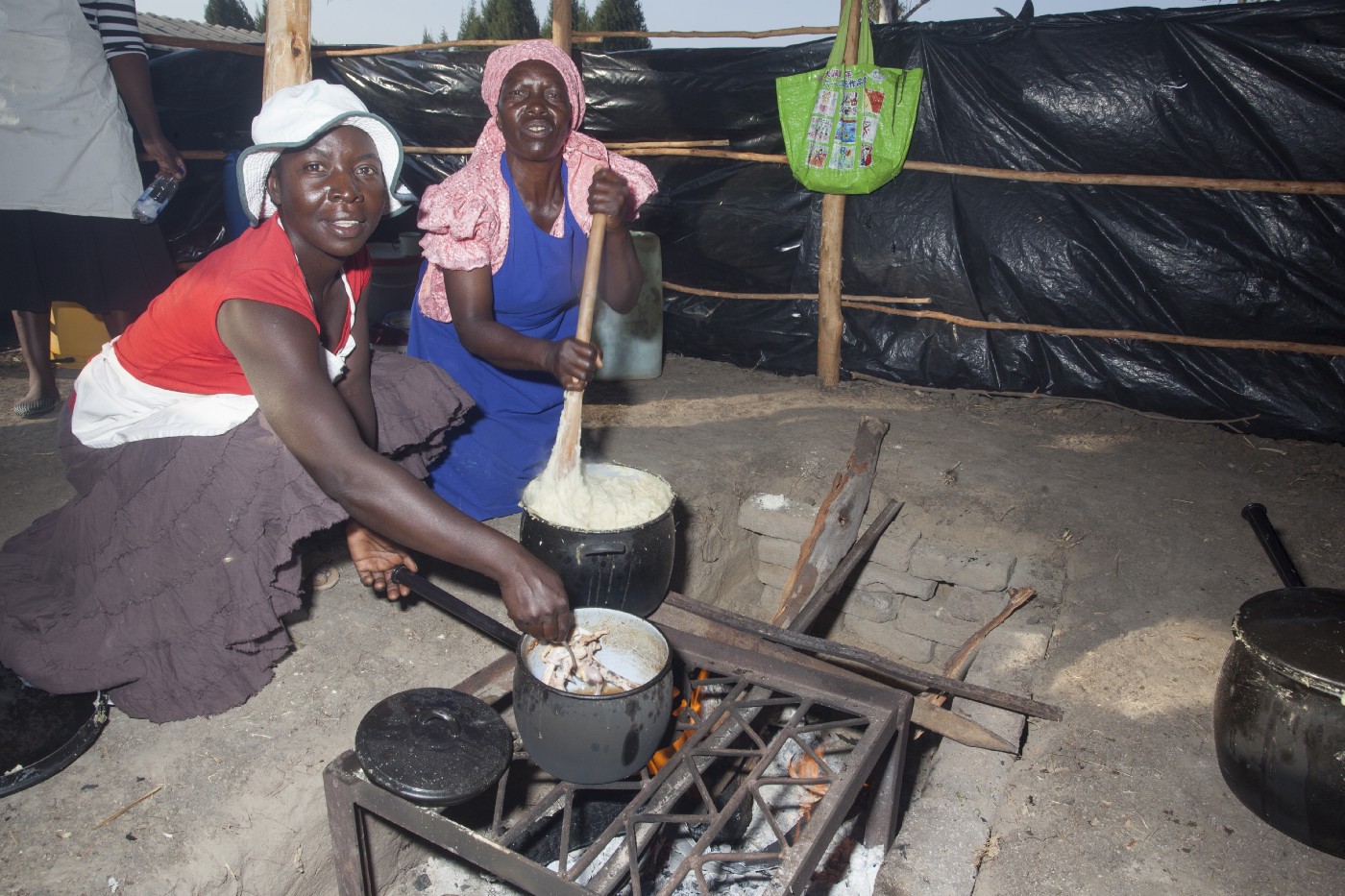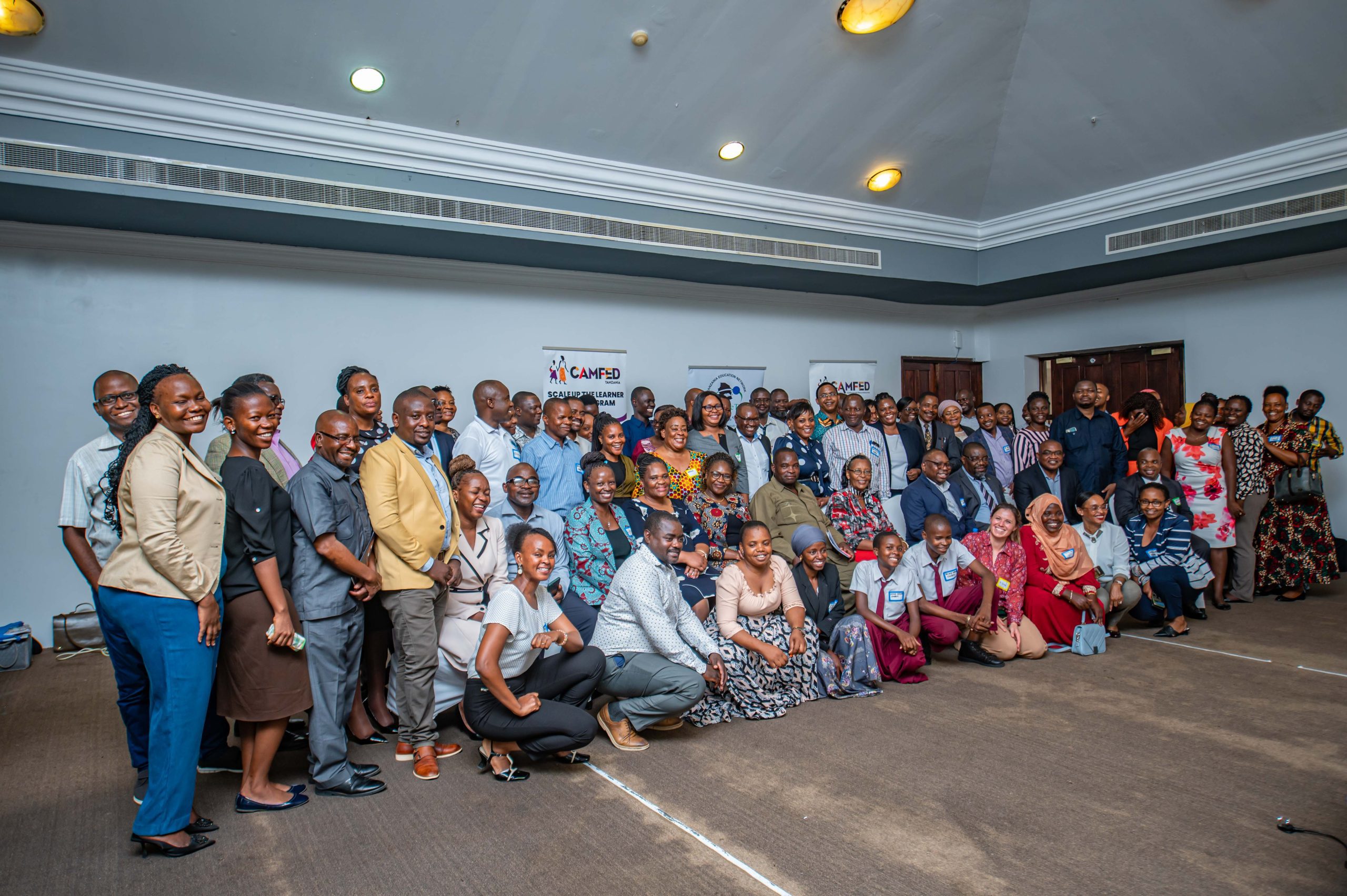This World Food Day, as the international community discusses how we can best support rural development and food security, Ina Mozhendi reflects on her recent visit to Camfed’s program supporting Early Child Childhood Development through the Roger Federer Foundation in rural Zimbabwe.
She describes how community ownership of the problem of hunger is providing a school-based solution that nourishes children’s bodies, hearts and minds.
I have always been fascinated by the enthusiasm that arises from families when it comes to their children’s welfare and upbringing. However, nothing could have prepared me for the amount of vibrancy and commitment that I witnessed on my recent field visit to Camfed’s Roger Federer Foundation supported program “Transforming the Lives of Children in Rural Zimbabwe at (pre-) primary school age.”
If community participation and ownership is anything to go by, I observed communities that have come together not only to take charge of their children’s well-being, but communities that have a genuine concern for the education of their children; and communities that have fully embraced the learnings that have come through from the Camfed program. Communities showed their power as a combined force in driving their development, but most importantly in contributing to their children’s foundation phase education as the most crucial phase of a child’s development.
How much can a child learn or absorb when their immediate need of food regularly goes unmet?
But, one could ask what the centerpiece of this community participation is. My opinion is that while quality teaching or good infrastructure or the best support structures are critical, the core of the change we want to see is in the children themselves: Children ready to partake in the quest to transform themselves and their communities. We all want children to be in school and to benefit from the learning. But what child has the energy to walk to school (at times up to 5km) on an empty stomach, or worse still, how much can a child learn or absorb when their immediate need of food regularly goes unmet?
This is where I saw the Mother Support Groups — or MSGs as they are popularly known — spring into action. These groups of mothers have, through the support and guidance of the Camfed program, launched a successful school feeding scheme which they run and manage to enrich their children’s education. As Faith Nkala, the National Director of Camfed Zimbabwe, puts it “Embedding the management of the school feeding program in the local community is key to the sustainability of the intervention”.
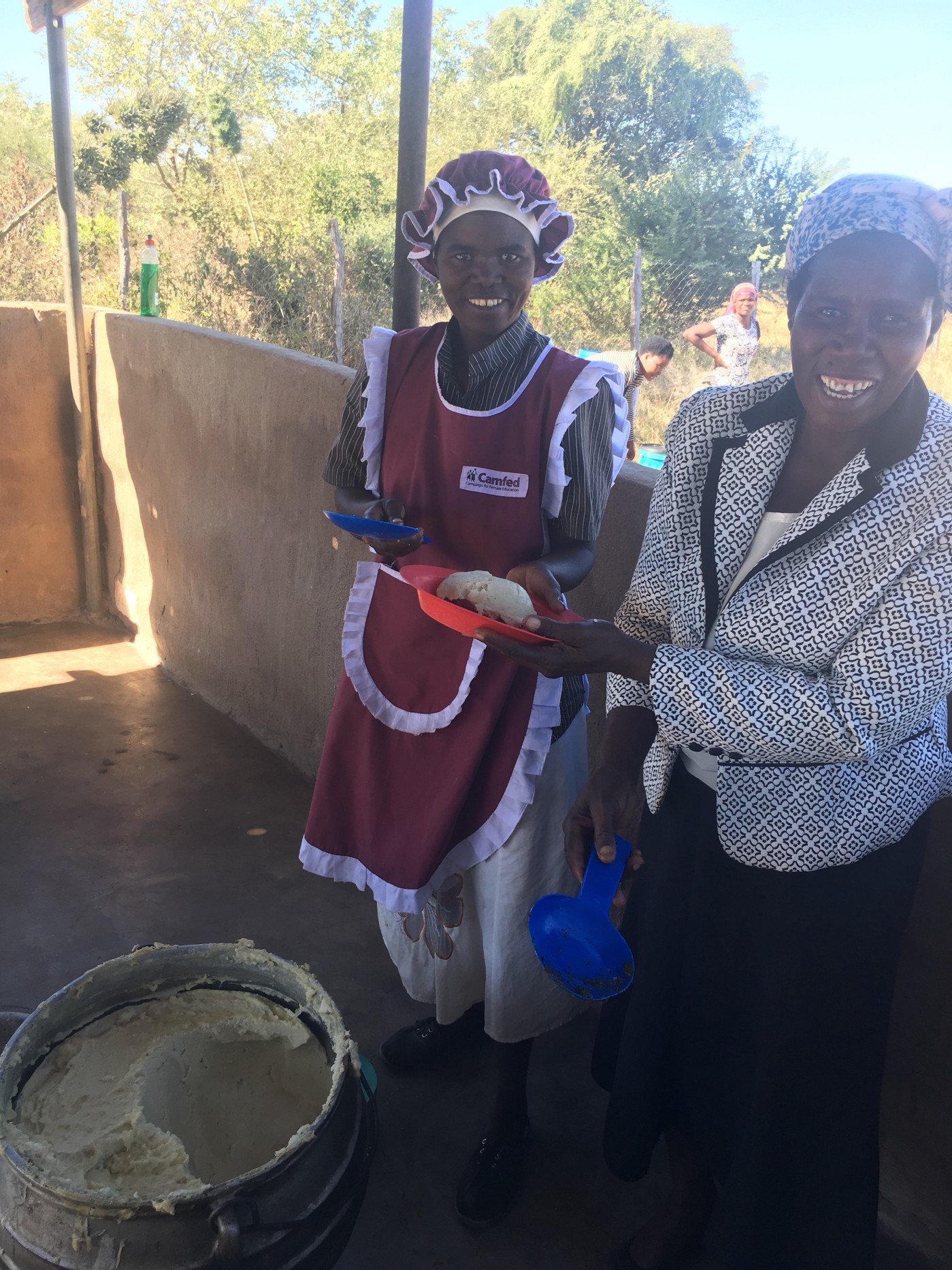
Through the school meal program, the whole community can participate in its children’s education
At the primary school in Beitbridge, as we approached, the MSGs paused their cooking, sang and ululated as a sign of welcoming their guests. That outward warmth, commitment, care and affection resonated very well with me as I relived my early years of schooling and how my own mother cared for the family and made efforts for her children to get them excited for each school day. Knowing that for schools like these, this task is not left to each mother and their household individually but to a group of mothers and ultimately the whole community was not only comforting, but also gave the impetus for families to participate in their children’s education. How I wish my own village had such a vibrant school feeding program of its own back then when I started my primary school. As an infant, not having attended any Early Childhood Development classes, I surely did not have much to look forward to at school. Missing classes, dragging myself to school….and yes I did struggle to pick the pace and in the process lose a couple of years trying to catch up…..
As I interacted with the mothers, it was clear to me that the school feeding tasks are managed with ease. By virtue of being mothers or care givers in their own homes, MSGs utilized their talents and organized themselves in such a way that it was evident they can run and manage the school feeding scheme into perpetuity. I was taken through the various ways that the MSGs remain afloat and how mothers remained committed. Their strategies included gardening and running a tuck shop as forms of income generating projects. Proceeds from such activities I was told did not only go to the feeding program, but mothers themselves were benefiting from the profits generated. The group of mothers in our meeting were full of big smiles, each one narrating how the proceeds from their involvement have contributed positively to their lives.
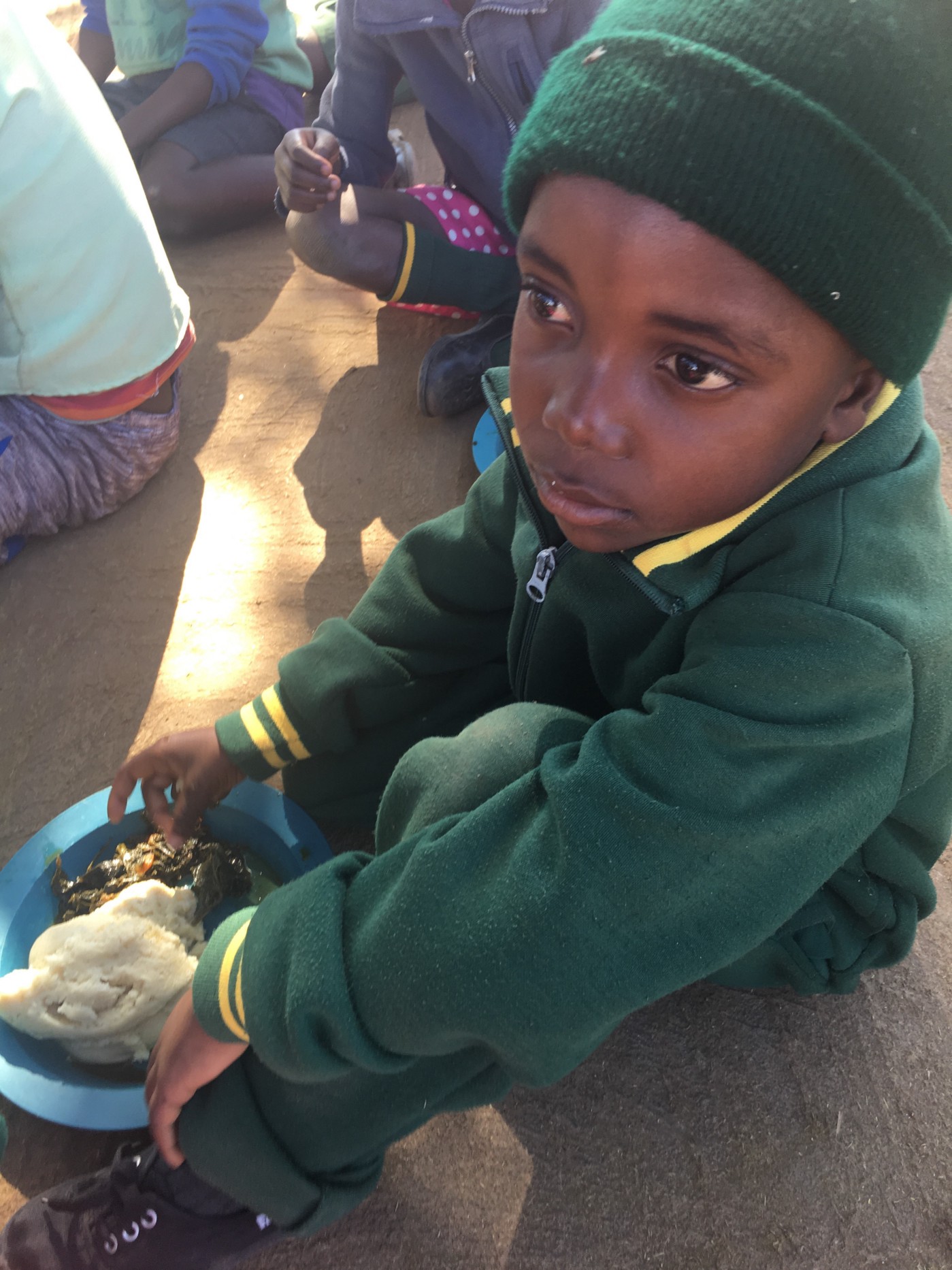
For many children, this may be the first or only meal of the day.
As feeding drew closer, I stopped the discussion with mothers and started to observe the cheerful and expectant children who stood in winding queues to wash their hands with the help of MSG members. One child I spoke to indicated that this was her first meal of the day. It was clear to me that this very meal was a big contributing factor to the child’s regular and punctual attendance to class, by so doing bringing out positive learning outcomes. The children were so contented and related so well with the mothers. I could only conclude that what they saw by extension was the love and compassion these mothers share in their own homes as it is transferred into the school.
Fathers organize themselves to fetch water and firewood, while mothers take turns to cook, and the whole community contributes the ingredients for cooking.
My discussions spilled over to some fathers who were attending our meeting. The conversation I had with the men showed that while mothers are the center piece of the school feeding, ultimately the whole community has a role to play. Fathers organize themselves to fetch water and firewood, while mothers take turns to cook, and the whole community contributes the ingredients for cooking.
What remains vivid in my mind is the pride that MSGs displayed knowing that the provision of school meals contributes to increased enrolment, increased school attendance, reduced drop outs, improved nutrition, reduced hunger, ignited and promoted community participation, rejuvenated Parents Teacher’s Associations, and above all pushes for a better life for their children.
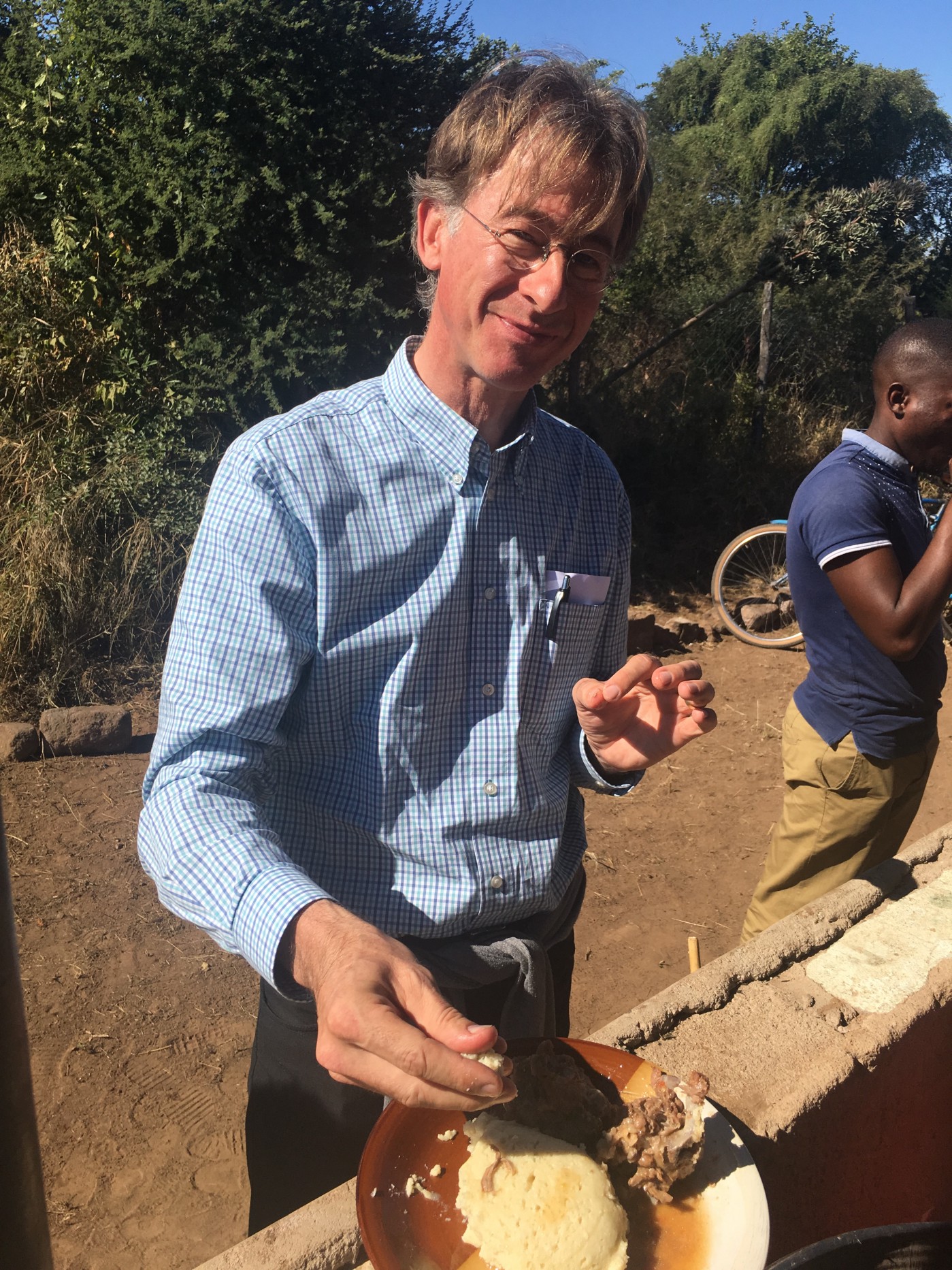
My colleague York Lunau, Executive Director of the Roger Federer Foundation, enjoying his school meal.
While the Roger Federer Foundation supported Camfed program has a range of interventions, it is without any doubt that the Mother Support Groups are indeed the nucleus to this program. In line with Roger Federer Foundation’s approach of community participation, ownership and involvement, my reflections for the Camfed program are of communities that can identify and appreciate the importance of their children’s education.
While some people may say mothers are the backbone of most families, what they displayed to me was a backbone to their communities.
Camfed, the Campaign for Female Education, supports some of the world’s most marginalized children to go to school, succeed and lead. Community ownership of our programs ensures sustainability, and the scalability of love and compassion.
To find out more about the Roger Federer Foundation, please visit www.rogerfedererfoundation.org
